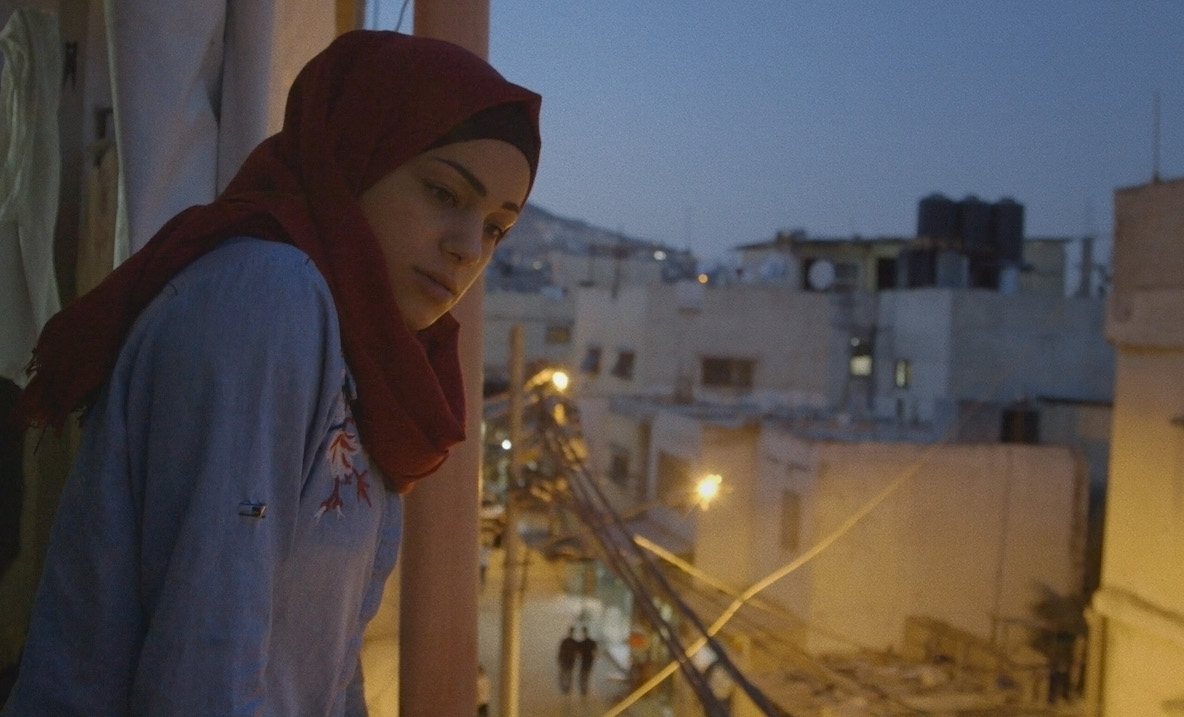There’s a key scene in the documentary What Walaa Wants by Canadian director Christy Garland and it’s in the first third of the film. Hanging out with the family of Palestinian teen Walaa Khaled Fawzy Tanji at the Balata Refugee Camp, Garland captures Walaa’s mother creating embroidery of the family tree.
“Walaa, you should be a strong branch!” declares her mother, Latifa Abu Draa. In Walaa’s face you glimpse both pride and a little trepidation. How will she embody and express this expectation?
The 90-minute film, shot and directed by Garland during a key period in Walaa’s life, ages 15 to 21, chronicles the many pressures and political internalizations of a young woman living in the West Bank. The documentary captured the Directors Guild of Canada Special Jury Prize for Canadian Feature Documentary at the Hot Docs Canadian International Documentary Festival in 2018.
While I’m not enamoured with the first 25 minutes of the film, it does establish the family dynamics and the utter claustrophobic environment of living in a 0.25-square kilometre space with 25,000 others. Regular life, such as it is, unfolds naturally on screen.
Early on, we see Walaa as a defiant and strong teen: “When I’m 18, I’m getting a gun.” In fact, we learn that her mum was in an Israeli jail for eight years. Released in 2011, Latifa shows herself to be a tough, formidable mother who is both concerned about her children (Walaa, her sister and her brother) but also bitingly harsh. Her blowups are stinging and cut to the core of her children.
This contrasts with old TV footage of a young Walaa lamenting the absence of a mother: “I feel like I have no one at all.” All three children were parceled out to live with relatives. We also discover that her dad has moved to Jordan and started a new family.
Rebel without a cause
The documentary has a major payback after 25 minutes or so — we learn that Walaa is about to live out her dream of getting that gun — by joining the Palestinian Security Forces (PSF) as a policewoman. From this point on, the film soars as we experience the brutal rigours of the PSF’s training program as it clashes with the stubborn character that is Walaa.
Walaa does everything she can to withdraw from the physical challenges of training. She lives in a dorm with other young female trainees and soon becomes a pariah to them. As Walaa shows herself to be a rebel without a cause — wearing makeup (a no-no) and accused of smuggling in cigarettes — her actions boomerang back on her peers. The girls are punished as a group for Walaa’s acts of insubordination. The dressing down she gets from the camp’s head is blistering. This makes us wonder: will this girl-woman with fire-in-her-belly be able to rouse any discipline and self-respect to save herself?
This is something Garland herself meditated on during the filming. “She’s smart, funny, yearning for something, and vulnerable, but she’s inherited her mother’s temper and can be a royal pain in the ass. I love her for all of it,” says Garland in her director’s notes.
It is cringe-worthy to watch Walaa expose her own ego-tripping and arrogance as she keeps making excuses for getting out of running and various other exercises.
Beyond her own development as the training proceeds, we get fascinating slices of how the camp is run and ironic lines like: “This is like an American prison!”
I don’t want to reveal much else about training camp and what happens after. The details are better left for the audience to experience, of course. Needless to say, there is a powerful scene in which her Commanding Officer gives her a talk: “We care about you…Walaa, to who do you belong?”
After training, Walaa gets to return home to her mother. The last half holds a major surprise and by the end, you get to witness Walaa’s arc as a person.
So much rich development in What Walaa Wants truly happens after the first third of the film. Yet, it is vital to watch her in her younger days as the film could have ended up being quite polarizing without the foundations of the early years: “She’s a delinquent in a hijab,” states Garland in her notes.
Despite that description, you can’t help but cheer for Walaa. As Garland puts it aptly: “I’m rooting for her as a human being, a girl who is interesting because she breaks rules, and because there are some rules she’s learning to follow, the hard way.”
Screening schedule
- Cinéma du Parc, Montreal, starting January 25 (select screenings with French subtitles)
- Globe Cinema, Calgary, starting February 15
- Metro Cinema, Edmonton, February 17 at 3 p.m.
- Hot Docs Ted Rogers Cinema, Toronto, February 20 at 6:30 p.m.
- Cinematheque, Winnipeg, February 27 and 28
- Vancity Theatre, Vancouver, February 27
- TIFF Bell Lightbox, Toronto (Canada’s Top Ten), starting March 1
June Chua is a Berlin-based journalist who regularly writes about the arts for rabble.ca.
Production still courtesy of NFB
Help make rabble sustainable. Please consider supporting our work with a monthly donation. Support rabble.ca today for as little as $1 per month!





